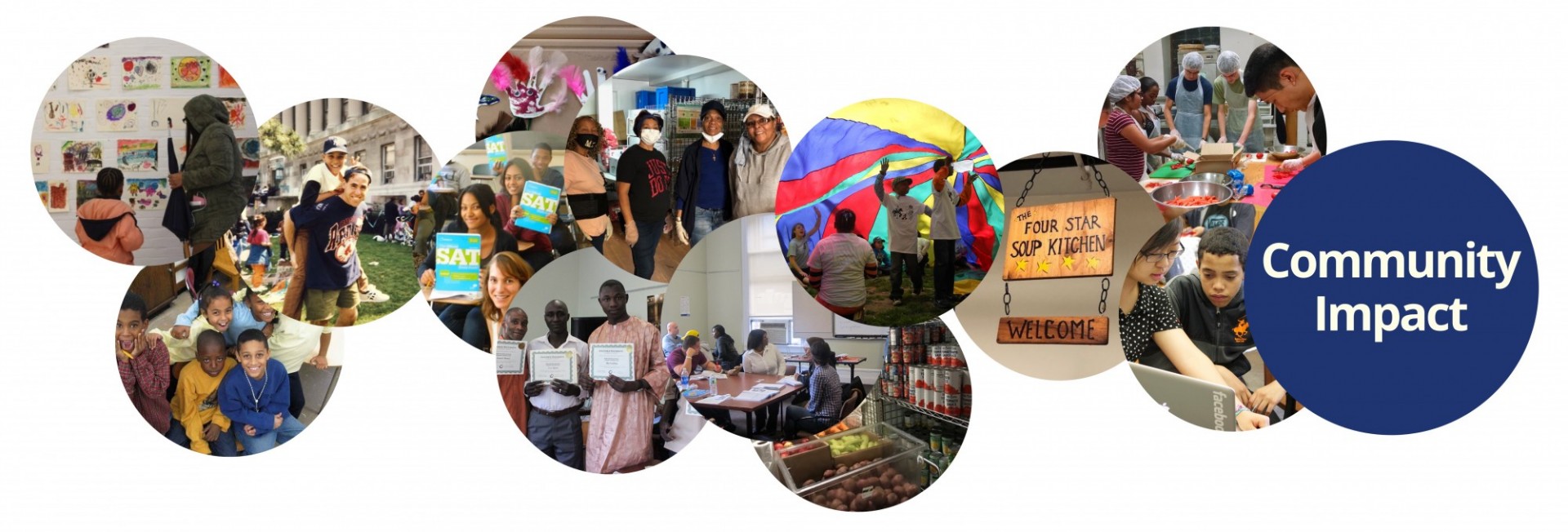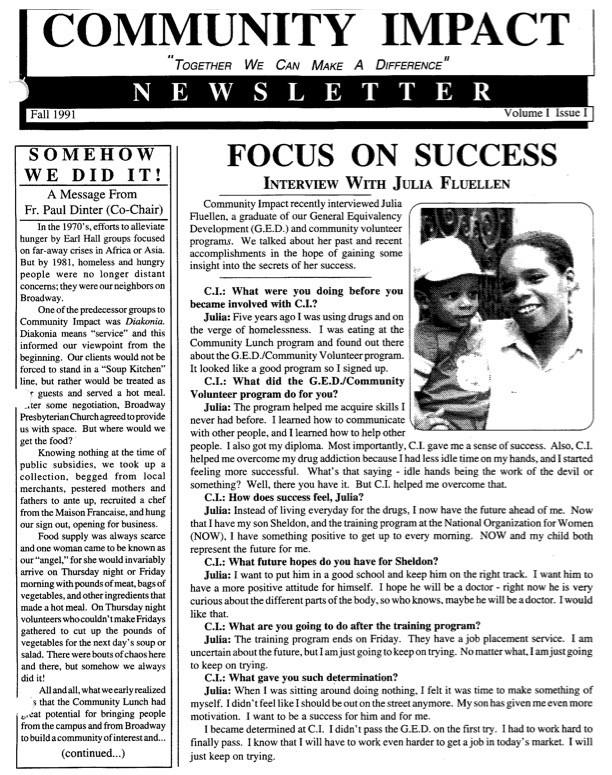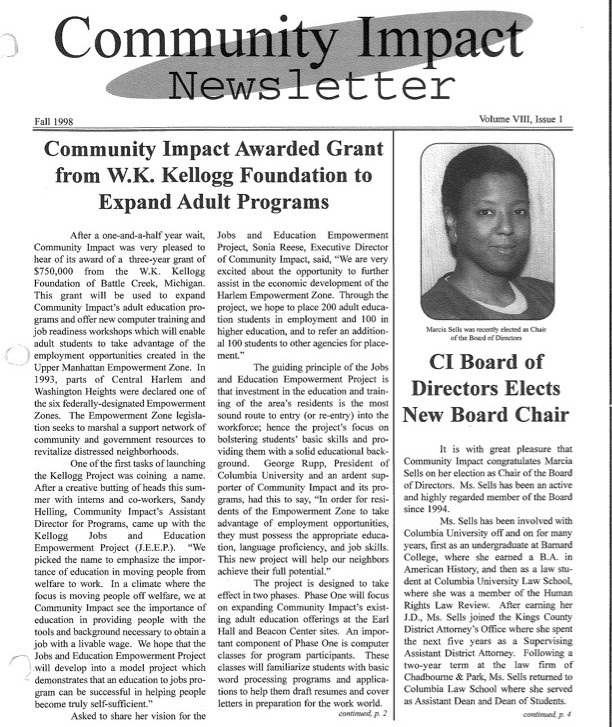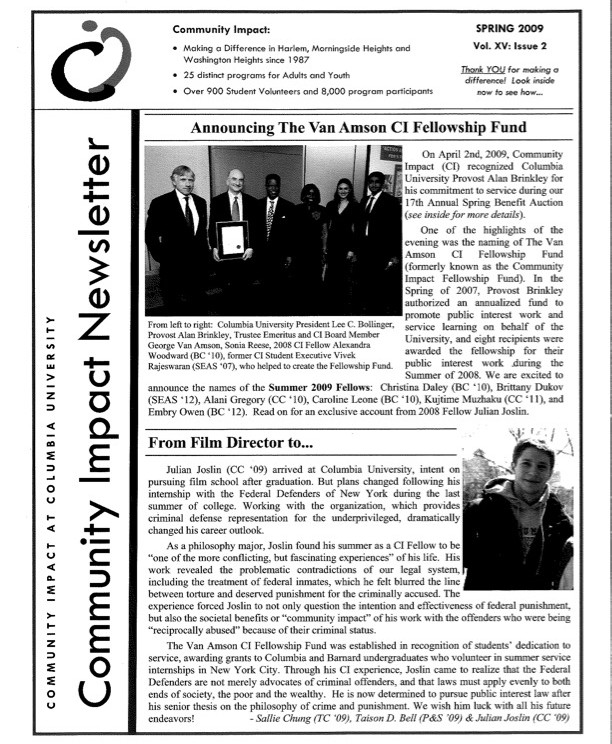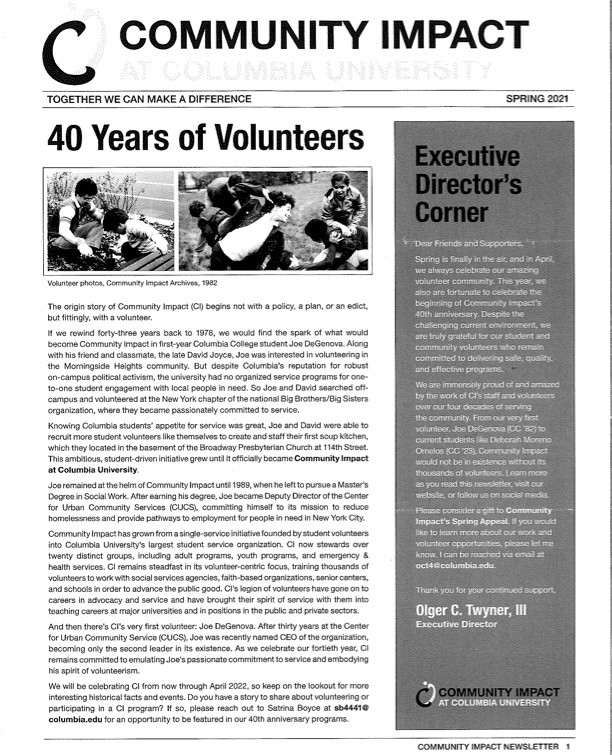History
Formed as a single service initiative in 1981 by Columbia University first-year undergraduates and classmates Joe DeGenova and David Joyce, Community Impact has grown into the university's largest student service organization. DeGenova was interested in volunteering in the Morningside Heights community. Despite the university's reputation for robust on-campus political activism,
there were no organized service programs for one-to-one student engagement with local people in need. DeGenova and Joyce recruited students to create and staff their first soup kitchen, which was located in the basement of the Broadway Presbyterian Church at 114th Street. This ambitious, student-driven initiative grew until it officially became Community Impact at Columbia University, the primary interface between Harlem, Morningside Heights, Washington Heights, and the university.
As the organization blossomed, students and staff invested in infrastructure to enhance volunteer skills, created mechanisms to improve existing programming, and developed relationships to establish a network with community leaders. As CI integrated itself into the neighborhood's social safety-net, students identified and responded to new community needs, expanding the number of services available to clients and working towards transforming the organization into an integrated service network with a strong educational emphasis. CI figures foremost in the university's long-standing pledge to support education through service. Operating under the dual status as a non-profit organization and an emissary from the University, CI has forged partnerships with community leaders and agencies committed to realizing neighborhood change.
In recent years, there has been substantial growth in the number of programs and volunteers at CI. CI has been met with challenges
to meet the needs of both its clients and student volunteers. CI now stewards over 20 distinct groups, including adult programs, youth programs, and emergency & health services. CI remains steadfast in training thousands of volunteers to work with social services agencies, faith-based organizations, senior centers, and schools to advance the public good. CI's legion of volunteers have gone on to careers in advocacy and service and have brought their spirit of service with them into teaching careers at major universities and in positions in the public and private sectors.
Thankfully, CI has been able to keep its programs up and running during the entire COVID-19 pandemic due to the dedication of its staff, students, and volunteers. CI is committed to more than 40 years of delivering quality programs that advance the public good and further develop its relationship with the university.

